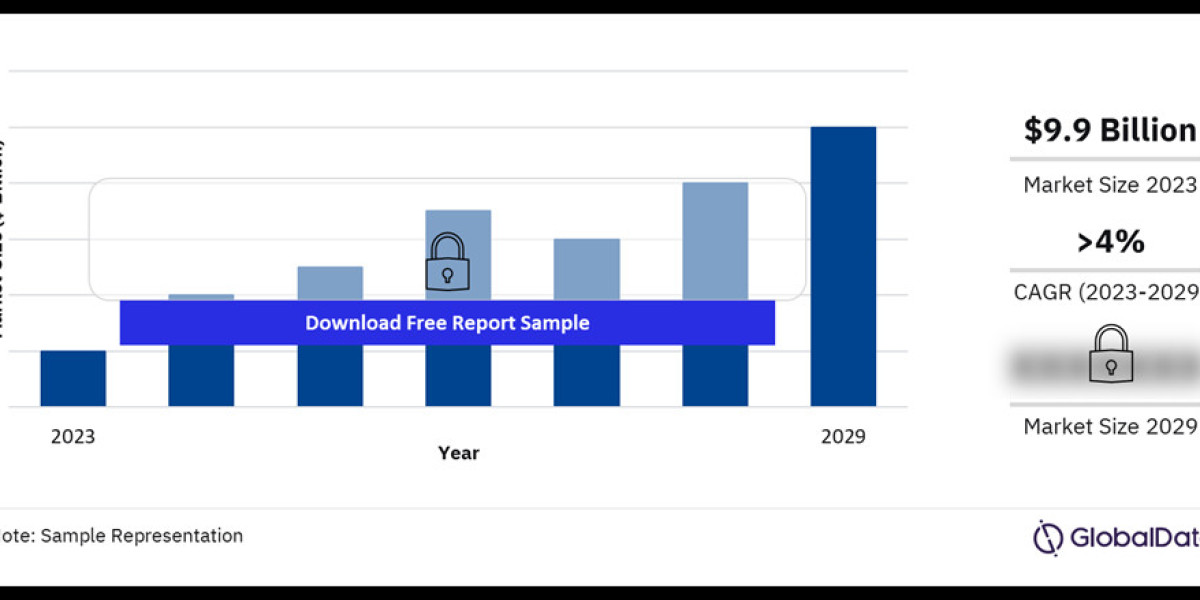The Global oncology drugs market is one of the most dynamic and rapidly evolving sectors in the global pharmaceutical industry. As the fight against cancer continues, oncology treatments are becoming more specialised, and personalised medicine is taking centre stage in offering more targeted and effective solutions. The oncology drugs market size was valued at USD 165.9 billion in 2023, and it is expected to grow significantly over the next decade. The market's growth is primarily driven by the rising prevalence of personalised medicine and advancements in oncology research. The oncology drugs market is projected to grow at a compound annual growth rate (CAGR) of 13.2% from 2024 to 2032, reaching a market size of USD 506.6 billion by 2032.
This article delves deep into the factors driving the growth of the oncology drugs market, explores the key trends shaping the industry, discusses the major players in the market, and answers frequently asked questions (FAQs) regarding oncology drugs.
Get a Free Sample Report with Table of Contents : https://www.expertmarketresearch.com/reports/generic-oncology-drugs/requestsample
Market Overview
Oncology drugs are used to treat cancer and come in various forms such as chemotherapy, immunotherapy, hormone therapy, and targeted therapies. These drugs aim to either kill cancer cells, shrink tumours, or stop the growth of cancer cells. With advances in genetic research, personalised medicine is gaining traction, offering patients treatments tailored to their individual genetic makeup.
Market Size and Forecast
As mentioned earlier, the oncology drugs market was valued at USD 165.9 billion in 2023. With the increasing global incidence of cancer and advancements in precision medicine, the market is expected to grow at a CAGR of 13.2% from 2024 to 2032. By 2032, the market is expected to reach USD 506.6 billion. This growth can be attributed to several factors such as increased cancer diagnoses, the rise of immunotherapy drugs, and continuous research and development in cancer treatment.
Key Drivers of the Oncology Drugs Market
Increase in Cancer Prevalence
The growing number of cancer cases worldwide is one of the primary drivers of the oncology drugs market. With more than 18 million new cancer cases reported annually worldwide, the demand for effective cancer treatment options is soaring. According to the World Health Organization (WHO), cancer remains one of the leading causes of death globally, accounting for nearly 10 million deaths in 2020. This significant increase in cancer prevalence is pushing the demand for new and innovative oncology drugs.Advancements in Personalised Medicine
Personalised medicine, also known as precision medicine, is one of the key innovations shaping the future of oncology treatments. By analysing the genetic makeup of individual patients and their tumours, personalised therapies can be designed to target the specific mutations driving the cancer's growth. This method significantly improves treatment efficacy and reduces side effects, making it a promising area in cancer drug development. The growing acceptance of personalised medicine is expected to boost market growth further.Rise in Immunotherapy Drugs
Immunotherapy is a treatment that uses the body’s immune system to fight cancer. This innovative approach is revolutionising cancer treatment, with drugs like immune checkpoint inhibitors, CAR-T cell therapies, and monoclonal antibodies making significant strides in improving patient outcomes. Immunotherapy drugs have shown remarkable effectiveness in treating cancers such as melanoma, lung cancer, and breast cancer, contributing to the rapid expansion of the oncology drugs market.Increased Research and Development (R&D) Investments
The oncology drugs market is also witnessing robust investments in research and development activities. Pharmaceutical companies and research institutions are working tirelessly to discover new molecules, develop more effective treatment regimens, and create therapies with fewer side effects. Increased funding for R&D is expected to accelerate the introduction of novel oncology therapies, driving market growth.Government Initiatives and Funding
Governments across the world are ramping up efforts to combat cancer, both in terms of prevention and treatment. Public and private funding for cancer research is increasing, which helps fuel innovation in the oncology drugs market. Additionally, the approval and reimbursement policies for cancer drugs are becoming more favourable in many regions, further encouraging market growth.
Key Trends in the Oncology Drugs Market
Adoption of Combination Therapies
Combination therapies, which combine different drugs with distinct mechanisms of action, are increasingly being used in cancer treatment. This approach enhances the overall effectiveness of the treatment, potentially leading to better patient outcomes. For example, the combination of immunotherapy drugs with chemotherapy or targeted therapies has shown promising results in treating a variety of cancers.Rise of Biosimilars
Biosimilars, which are biologic medical products highly similar to already approved reference biologics, are gaining traction in oncology. These drugs offer more affordable alternatives to expensive biologics, such as monoclonal antibodies. With cancer treatment costs skyrocketing, the adoption of biosimilars can help reduce the financial burden on patients and healthcare systems.Adoption of Artificial Intelligence (AI) in Drug Development
AI and machine learning technologies are playing a vital role in drug discovery, allowing for faster and more efficient identification of potential cancer therapeutics. AI is helping researchers identify new drug candidates, predict patient responses, and streamline clinical trials, significantly accelerating the process of oncology drug development.Focus on Targeted Therapies
Targeted therapies focus on specific molecules or genes involved in the growth of cancer cells. These therapies are more precise than traditional chemotherapy and can lead to better outcomes with fewer side effects. Targeted therapies are increasingly being used for cancers such as breast, lung, and colorectal cancers, with more therapies being developed.
Key Players in the Oncology Drugs Market
Several pharmaceutical companies are actively engaged in the development of oncology drugs. Below are some of the key players dominating the oncology drugs market:
Roche
Roche, based in Basel, Switzerland, is a global leader in oncology drugs. The company’s oncology portfolio includes various targeted therapies and immunotherapy drugs, including its blockbuster drug, Herceptin. Roche is also involved in the development of new immunotherapies and precision medicines for cancer treatment.Pfizer
Pfizer, headquartered in New York, USA, is another key player in the oncology drugs market. The company’s oncology portfolio includes a range of therapies for treating different types of cancer, such as breast cancer, lung cancer, and haematological cancers. Pfizer is also focused on advancing immunotherapy treatments.Novartis
Novartis, based in Basel, Switzerland, has made significant strides in cancer treatment, particularly in the area of targeted therapies and CAR-T cell therapies. Kymriah, Novartis’ CAR-T therapy, has revolutionised the treatment of certain types of blood cancers. Novartis continues to invest in expanding its oncology portfolio.Merck & Co.
Merck & Co., based in Kenilworth, New Jersey, USA, is known for its immunotherapy drug, Keytruda, which has shown remarkable efficacy in treating a variety of cancers, including non-small cell lung cancer, melanoma, and bladder cancer. Merck continues to lead the charge in immuno-oncology.Bristol-Myers Squibb
Bristol-Myers Squibb, based in New York, USA, is a leader in the development of immuno-oncology therapies. The company’s drug, Opdivo, has become a cornerstone in the treatment of several types of cancer, including melanoma and non-small cell lung cancer.AstraZeneca
AstraZeneca, based in Cambridge, UK, is known for its focus on innovative cancer treatments. The company’s oncology portfolio includes therapies for lung cancer, ovarian cancer, and blood cancers. AstraZeneca is heavily invested in the development of targeted therapies and immunotherapies.
FAQs
1. What are oncology drugs?
Oncology drugs are medications used to treat cancer. They can work by killing cancer cells, shrinking tumours, or stopping cancer cells from growing and spreading. These drugs include chemotherapy, targeted therapies, immunotherapy, and hormone therapy.
2. What is personalised medicine in oncology?
Personalised medicine refers to the use of genetic testing and analysis to tailor cancer treatment to an individual’s genetic profile. This allows for more targeted therapies that are more likely to be effective and less likely to cause side effects.
3. How fast is the oncology drugs market growing?
The oncology drugs market is growing at a CAGR of 13.2% from 2024 to 2032. The market size is expected to increase from USD 187.8 billion in 2024 to USD 506.6 billion by 2032.
4. What are the most common types of oncology drugs?
The most common types of oncology drugs include chemotherapy drugs, immunotherapy drugs (e.g., checkpoint inhibitors), targeted therapies (e.g., tyrosine kinase inhibitors), and hormone therapies.
5. Who are the key players in the oncology drugs market?
Key players in the oncology drugs market include Roche, Pfizer, Novartis, Merck & Co., Bristol-Myers Squibb, and AstraZeneca.









